Minghe Zhu
Learning to Continuously Optimize Wireless Resource In Episodically Dynamic Environment
Nov 16, 2020
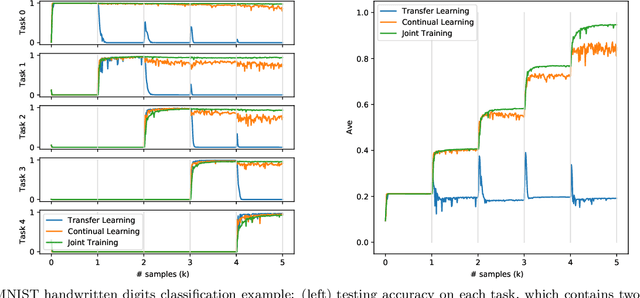
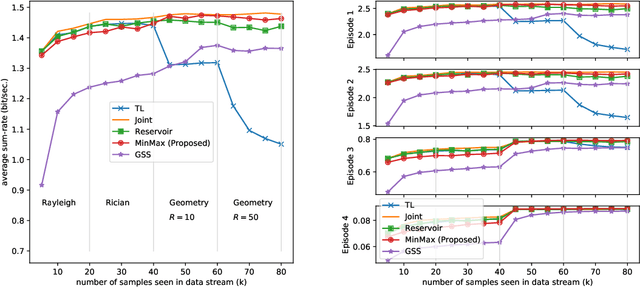
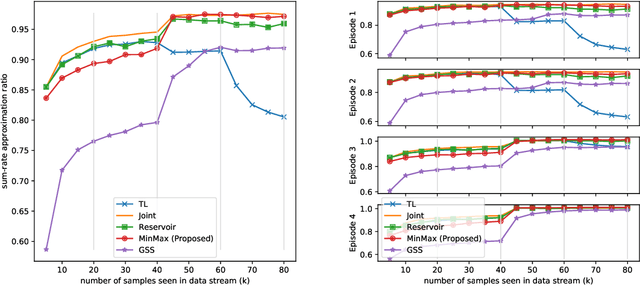
Abstract:There has been a growing interest in developing data-driven and in particular deep neural network (DNN) based methods for modern communication tasks. For a few popular tasks such as power control, beamforming, and MIMO detection, these methods achieve state-of-the-art performance while requiring less computational efforts, less channel state information (CSI), etc. However, it is often challenging for these approaches to learn in a dynamic environment where parameters such as CSIs keep changing. This work develops a methodology that enables data-driven methods to continuously learn and optimize in a dynamic environment. Specifically, we consider an ``episodically dynamic" setting where the environment changes in ``episodes", and in each episode the environment is stationary. We propose to build the notion of continual learning (CL) into the modeling process of learning wireless systems, so that the learning model can incrementally adapt to the new episodes, {\it without forgetting} knowledge learned from the previous episodes. Our design is based on a novel min-max formulation which ensures certain ``fairness" across different data samples. We demonstrate the effectiveness of the CL approach by customizing it to two popular DNN based models (one for power control and one for beamforming), and testing using both synthetic and real data sets. These numerical results show that the proposed CL approach is not only able to adapt to the new scenarios quickly and seamlessly, but importantly, it maintains high performance over the previously encountered scenarios as well.
Learning to Beamform in Heterogeneous Massive MIMO Networks
Nov 08, 2020
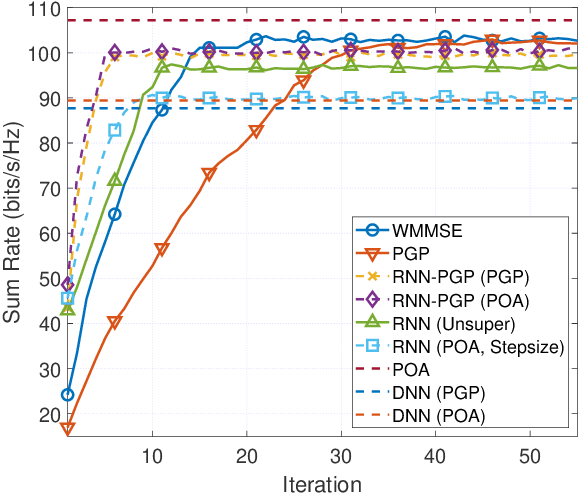
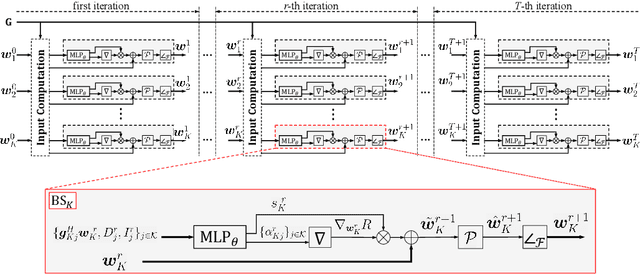
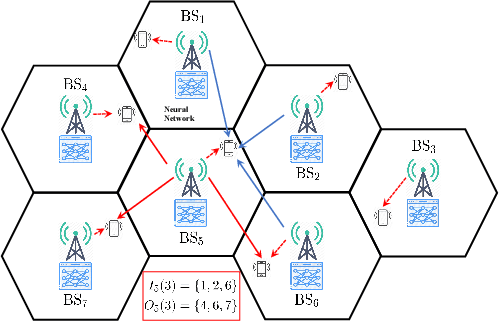
Abstract:It is well-known that the problem of finding the optimal beamformers in massive multiple-input multiple-output (MIMO) networks is challenging because of its non-convexity, and conventional optimization based algorithms suffer from high computational costs. While computationally efficient deep learning based methods have been proposed, their complexity heavily relies upon system parameters such as the number of transmit antennas, and therefore these methods typically do not generalize well when deployed in heterogeneous scenarios where the base stations (BSs) are equipped with different numbers of transmit antennas and have different inter-BS distances. This paper proposes a novel deep learning based beamforming algorithm to address the above challenges. Specifically, we consider the weighted sum rate (WSR) maximization problem in multi-input and single-output (MISO) interference channels, and propose a deep neural network architecture by unfolding a parallel gradient projection algorithm. Somewhat surprisingly, by leveraging the low-dimensional structures of the optimal beamforming solution, our constructed neural network can be made independent of the numbers of transmit antennas and BSs. Moreover, such a design can be further extended to a cooperative multicell network. Numerical results based on both synthetic and ray-tracing channel models show that the proposed neural network can achieve high WSRs with significantly reduced runtime, while exhibiting favorable generalization capability with respect to the antenna number, BS number and the inter-BS distance.
 Add to Chrome
Add to Chrome Add to Firefox
Add to Firefox Add to Edge
Add to Edge